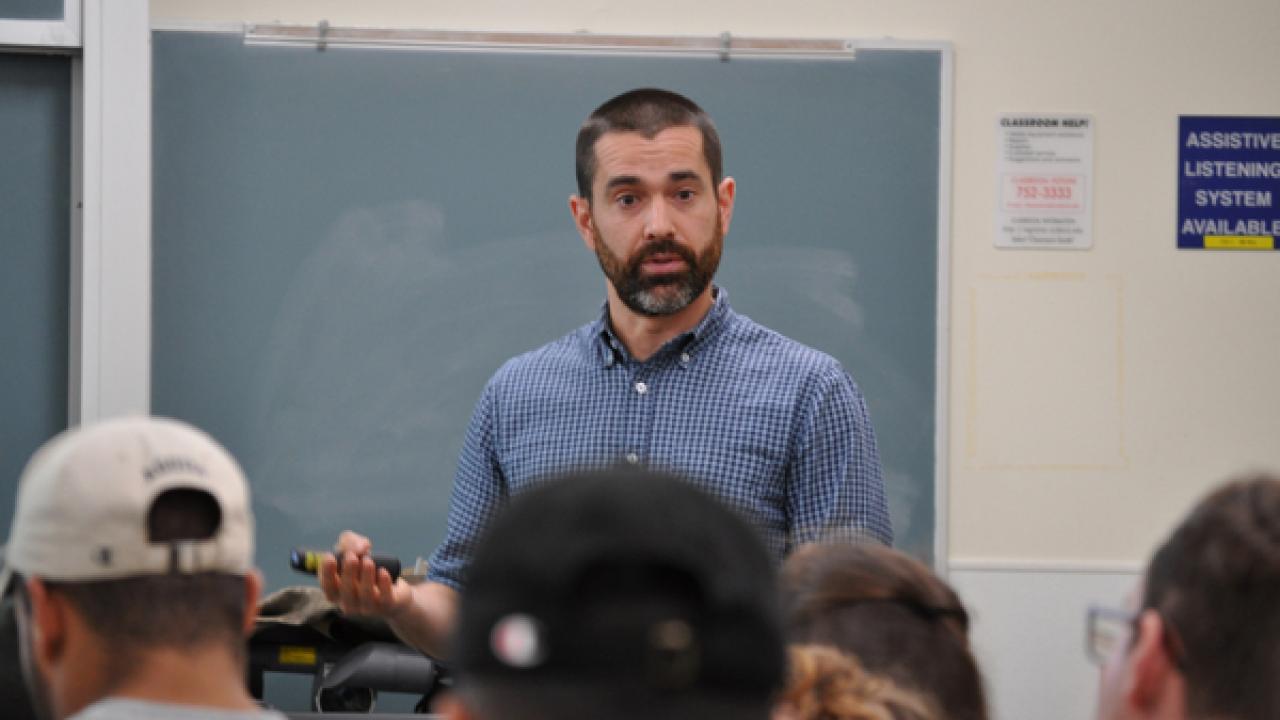
It is through the microbial transformation of sugar, and other compounds in grape must, that wine is produced.
Microbes that thrive in must live in an environment that is characterized by high sugar levels and low pH values, which transitions, through microbial activity, to an environment high in ethanol. These niche environments are dominated by acid- and ethanol-tolerant microbes that include lactic and acetic acid bacteria, yeasts and fungi. Most notably, Saccharomyces cerevisiae and Oenococcus oeni, which perform the ethanol and malolactic fermentations, respectively.
VEN 128 focuses on the nature, development, physiology, biochemistry, and control of yeasts and bacteria in the making, aging and spoilage of wine. This involves two hours of class discussions per week revolving around the major microbial species found in wine, how microbial activity impacts the organoleptic properties of the wine, principles of wine fermentation, and the role of molecular technologies in fermentation management.
VEN128L further builds on the VEN128 lecture material with hands on experimentation using wine microbes. Two, three-hour laboratory sessions per week provide training to identify the major microbial species present in wine using microscopic examination and DNA-based molecular techniques, which are just starting to be employed by the wine industry. Importantly, these skills can be used in a winery to rapidly identify and effectively monitor microbes, particularly those microbes that can negatively impact the quality of the wine produced (e.g. Brettanomyces bruxellensis).
The laboratory further focuses on assessing data quality, communicating scientific data in written reports, and critically evaluating such data with respect to current research literature. These are critical skills, since as potential future enologists and winemakers, it is essential that they know what the data means, can tell others of its importance, and can use the information to better their wine making practices.
These two courses are taken by both undergraduate and graduate students studying Viticulture and Enology, with 60 students in VEN128 and 48 in VEN128L this year.
